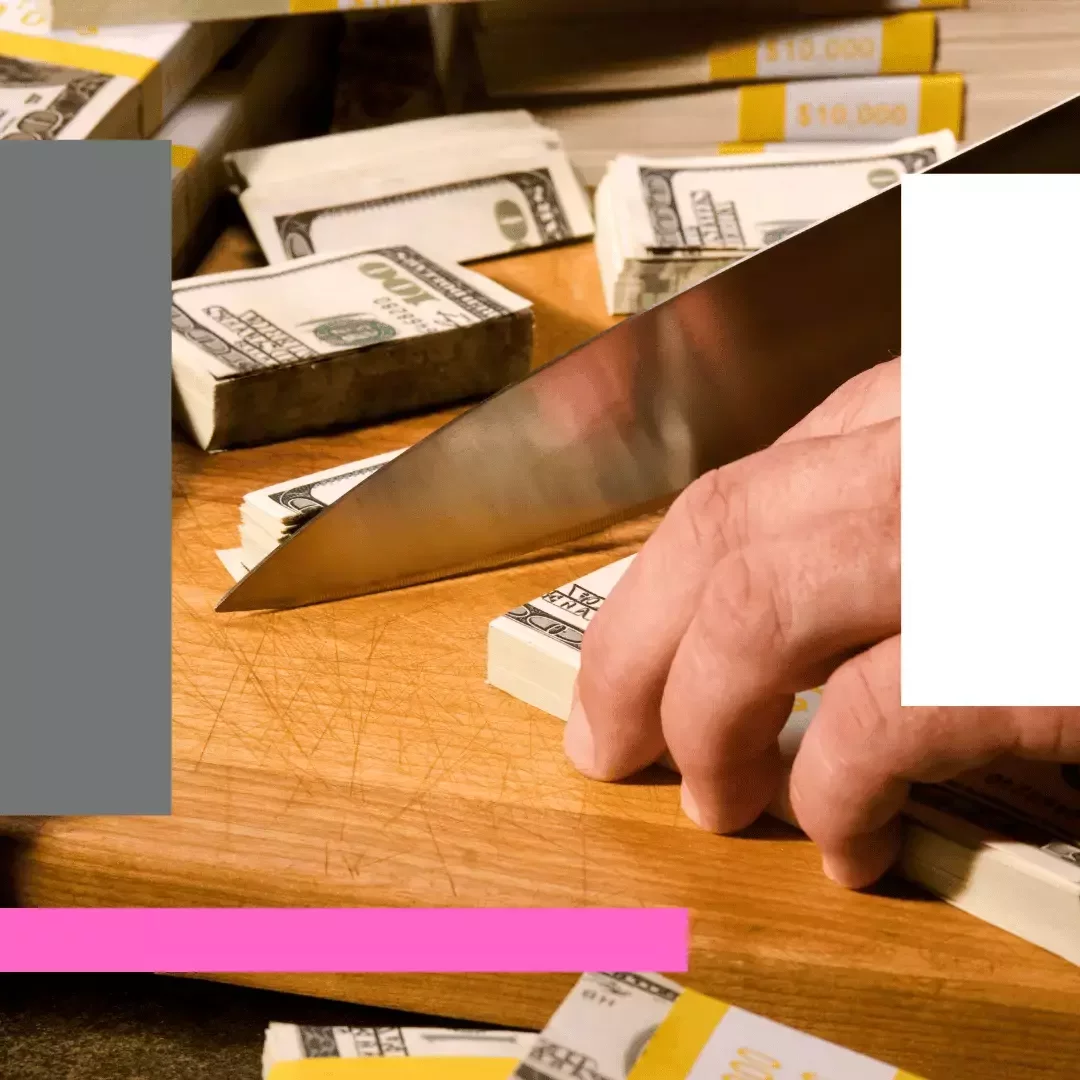
4 Things to do when in Debt
Debt can be a merciless cycle, squeezing the life from your finances, relationships, and dreams. The constant stress and anxiety can leave you feeling isolated, ashamed, and hopeless. You may wonder: "How did I get here?" "Will I ever escape?" "Am I worthy of a debt-free life?"
The truth is, debt doesn't discriminate. It can creep up on anyone, regardless of income, education, or background. A medical emergency, job loss, or simple mismanagement can send even the most responsible person spiraling into debt.
But there is hope. Firstly, you must take the most important 4 steps into consideration when you are faced with debt.
Common ways people fall into debt:
- Over-reliance on credit: Easy access to credit cards, personal loans, and store accounts.
- Unaffordable lifestyles: Spending beyond means to maintain status or keep up with consumer trends.
- Medical expenses: Unforeseen medical bills, lack of medical aid, or inadequate insurance.
- Unemployment or irregular income: Reduced income, job loss, or irregular pay.
- Poor financial planning: Insufficient budgeting, saving, and investing.
- Credit provider targeting: Aggressive marketing by credit providers, especially to low-income earners.
- Family or social pressures: Financial obligations to family or friends.
- Blacklisting: Defaulting on payments, leading to damaged credit scores.
- Vehicle finance: High-interest rates, balloon payments, and lengthy repayment terms.
- Education expenses: Funding tertiary education without a clear repayment plan.
Do not avoid people you owe
Contact your lenders and explain your situation, see what alternatives are available to assist you. Ignoring them will lead to a negative credit score.
Your credit score is one of the most important financial rating tools to monitor and you must always strive to improve it. This is what credit providers will check to determine if you are a risky potential client or not. It is also what they use to determine what interest rate to charge you INDIVIDUALLY.
Evaluate the affects of a payment holiday before rushing in
A payment holiday is not without financial consequences. Your lender does not stop charging amongst others the following:
· Finance charges/ Interest
· Account maintenance fees
· Credit protection
· Credit facility service fee
Take this into account and check what works for you. Cutting unnecessary expenses is always the cheapest option.
Know your Interest Rates
Open all statements and check how much interest is being charged on your debt. This will help you to determine which debt repayment strategy will be helpful for you. Every credit transaction carries an interest rate and this is one of the most important factors to check so you can have more control over your situation. View your statements and check how much interest is being charged on your debt. This will help you to determine which debt repayment strategy will be helpful for you. Every credit transaction carries an interest rate and this is one of the most important factors to check so you can have more control over your situation.
Evaluate Policies you have:
- Credit protection: Check all your statement and see if this is included, if it is you might have your monthly instalments paid for. This will usually be in the event of retrenchment/ loss of income, disability or death. Check your policy document to make sure what you are covered for.
- Life cover: Check if your life cover policy covers loss of income. This will come in handy when in situations like retrenchments. Visit our Live Cover vs Funeral Cover page for more info.
- Group life benefits: Check if as part of your employee benefits loss of income is included. This will be to your benefit if you are facing retrenchment. Visit our Group Life Cover page for more info.

Breaking the Debt Cycle: A Path to Financial Freedom
Breaking the debt cycle requires more than just financial discipline; it demands a holistic approach that addresses emotional and psychological factors driving overspending. The journey begins with self-awareness, acknowledging the underlying reasons for your debt.
Recognize Emotional Triggers
Identify the emotions that drive your spending habits. Are you seeking comfort, validation, or escape? Do you feel pressure from social media or peers? Understanding these triggers enables you to develop strategies to manage them. For instance, if you spend when stressed, replace shopping with relaxation techniques like meditation or exercise.
Assess Your Spending Habits
Track every transaction for a month to grasp your spending patterns. Categorize expenses into needs (housing, food) and wants (entertainment, hobbies). This clarity helps prioritize essential expenses and eliminate unnecessary ones.
Create a Realistic Budget
Develop a budget that allocates 50% for necessities, 30% for discretionary spending, and 20% for saving and debt repayment. Prioritize high-interest debts first. Consider consolidating debts into a lower-interest loan or balance transfer credit card.
Implement Practical Strategies
1. Cut expenses: Cancel subscription services, cook at home, and reduce entertainment costs.
3. Use the 30-day rule: Delay non-essential purchases for 30 days to assess their importance.
4. Automate payments: Set up automatic transfers for bills and debt repayment.
5. Leverage technology: Utilize budgeting apps like 22Seven.
Rebuild Emotional Resilience
- Practice gratitude: Focus on what you already have, rather than what you lack
- Cultivate self-compassion: Treat yourself with kindness, acknowledging setbacks as opportunities for growth.
- Develop coping mechanisms: Replace shopping with healthier habits, such as journaling, reading, or spending time in nature.
- Seek support: Share your struggles with a trusted friend, family member, or financial advisor.
Maintain Long-Term Financial Discipline
1. Regularly review and adjust your budget.
2. Continuously educate yourself on personal finance.
3. Avoid new debt, focusing on savings and investments.
4. Build an emergency fund to prevent future debt.

We have designed a month-by-month process to help you navigate this fragile process. Please visit our comprehensive Year Planner and rewrite your financial narrative in 12 months!
Breaking the debt cycle requires patience, persistence, and self-awareness. By addressing emotional and psychological factors driving overspending, you'll develop a healthier relationship with money and secure a brighter financial future.
Take your first step towards liberation. Let's walk this journey together, confronting debt's emotional and financial toll, and rediscovering the peace of mind that comes with taking control of your finances.

Modern Day Financial Slavery: Unveiling the Mental Health Crisis in SA's Debt Trap
Modern Day Financial Slavery: Unveiling the Mental Health Crisis in SA's Debt Trap
High financial stress affects 87% of South Africans, leading to anxiety and depression. Addressing this crisis requires comprehensive strategies and support for personal financial stability.
Read the Moneyweb article HERE
Feeling Financial Pressure? You're not alone - Younger SA Women see the Worst
Younger people and those with less income are the most anxious, with particularly women carrying the burden of financial stress. Older people and those in the higher income bands are least worried but have the highest levels of unsustainable debt and are less likely to seek help.
Read the IOL article HERE
